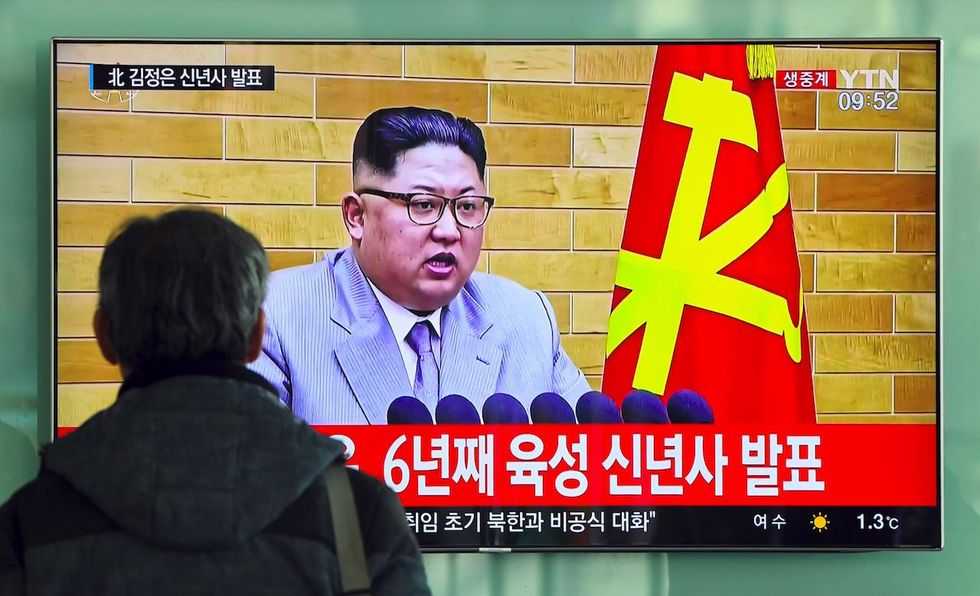
North Korea leader Kim Jong Un told South Korean envoys that he's willing to discuss suspending nuclear program. (Jung Yeon-Je/AFP/Getty Images)

North Korean President Kim Jong Un reportedly told South Korean leaders this week that his regime would be willing to begin discussions with the U.S. on abandoning its nuclear weapons program.
During a two-day meeting in Pyongyang, the North Korean leader also agreed to suspend all nuclear and missile tests during talks with the U.S., the New York Times reported.
“The North Korean side clearly stated its willingness to denuclearize,” South Korean President Moon Jae-in said in a statement, the Times reported. “It made it clear that it would have no reason to keep nuclear weapons if the military threat to the North was eliminated and its security guaranteed.”
South Korean envoys traveled to North Korea's capital for a two-day visit, which ended Tuesday. The two Koreas agreed to hold a summit between Kim and Moon in late April on the border of the countries.
"We started our journey for peace and prosperity with the confidence that we can make denuclearization and establish peace on the Korean peninsula with our own efforts," Moon said while speaking at the Korea Military Academy’s graduation ceremony, Voice of America reported.
South Korean envoys will meet with Moon before traveling to the Washington, D.C., where they will brief the Trump administration.
North Korea has a history of making false agreements to disable its nuclear program in exchange for aid and other benefits. For example:
● In October 1994, then-President Clinton approved $4 billion in energy aid to North Korea in return for its promise to freeze and eventually dismantle the country's nuclear program.
● In September 2005, the Communist country agreed to end its nuclear program in return for security, energy benefits, and easing tensions with the U.S.
● In October 2007, the North Koreans agreed to disable all nuclear facilities by year's end.
● In February 2012, North Korea said it would suspend nuclear weapons testing and uranium enrichment. It also promised to allow international inspectors to monitor its activities at its main atomic complex.
On Tuesday, U.S. Director of National Intelligence Dan Coats said at a Senate hearing that there's much more to learn before he would be willing to assess North Korea's willingness to hold "these talks," Reuters reported.
Lt. Gen. Robert Ashley, director of the U.S. Defense Intelligence Agency, told senators at a Senate Armed Services Committee hearing Tuesday that he wasn't optimistic about the possibility.
“That’s kind of a ‘show me,’ and so we’ll see how this plays out,” Ashley said.
Kim, Ashley added, "shows no interest in walking away from his nuclear or his ballistic missile programs. Additional missile launches are a near certainty, and further nuclear tests are possible," the Los Angeles Times reported.